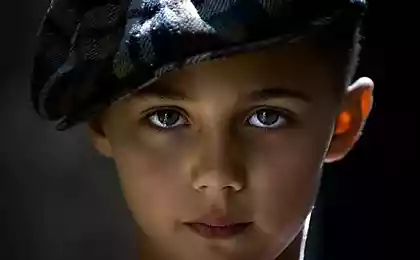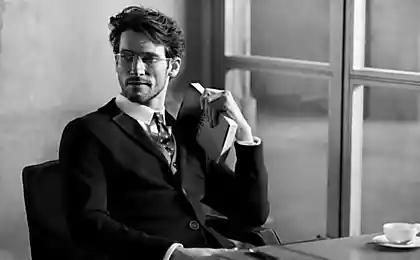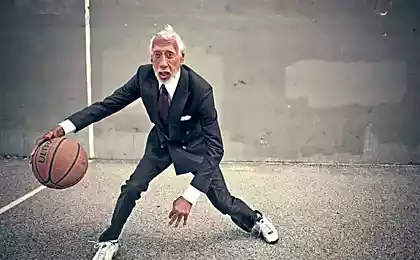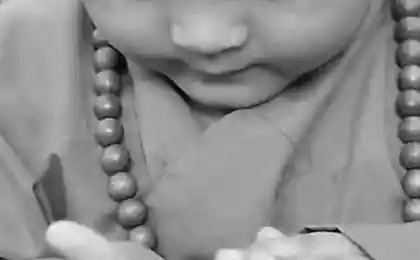7 mistakes education that prevent children succeed
Website recommends that all present and future parents to read the article Elmore, not to commit these blunders.

1. We do not give children to risk h2> We live in a world full of dangers at every turn. The slogan "Safety First" reinforces the fear of losing our children, so we surround their universal concern. European psychologists have found that if children do not play on the street, if they never had to fall and tear knee, then into adulthood, they often suffer from phobias.
The child should fall a few times to understand what is normal. Teenagers must fight and survive the bitter taste of first love, to gain emotional maturity, which is essential for long-term relationships.
to eliminate the risk of the lives of children, adults produce their arrogance, arrogance and low self-esteem in the future.
blockquote>2. We rush too quickly to help. H2> Today's generation of young people do not develop a few skills that were inherent in children 30 years ago. When we too will soon come to the rescue and overly surround the child "care", we deprive it of the need to find a way out of difficult situations.
Sooner or later, the children get used to the fact that someone always save them, "If I make a mistake or do not reach the goal, the correct and adults razgrebut consequences." Although in reality the world of adult relationships arranged quite differently.
Your children are at risk of being unfit to adulthood.
blockquote>3. We admire them too easily. H2> Movement esteem began with the baby boomer generation, and in 1980 it took root in the school. The rule "every participant receives a Cup" allows the child to feel special. But modern psychologists study shows that this method has the unintended consequence of encouraging.
After some time the child sees that the only people who think it wonderful - it's mom and dad, and the rest do not. And then the child begins to doubt the objectivity of their parents. He was pleased to receive praise, but he realizes that it has nothing to do with reality.
Over time, a child learns to cheat, to exaggerate and lie to avoid an uncomfortable reality. Because it simply is not suited to clashes with difficulties.
blockquote>4. We allow guilt overshadow the good behavior. H2> Your child should not love you every minute. He will have to overcome a lot of trouble in this life, but this may prevent spoiled. Therefore tell the kids "no" and "not now", so that they learn to fight for their wishes and needs. If several children in the family, parents are generally considered unfair to award one child and leaving the other deprived. But the reward of all, and always unrealistic. By doing so, we miss an opportunity to show kids that success depends on our own efforts and good deeds.
Think twice before you reward the children travel to the shopping centers. If your relationship is based solely on material incentives, the children will not feel any intrinsic motivation, or unconditional love.
blockquote>5. We do not share their own mistakes of the past. H2> The time will come when a healthy teenager necessarily wish to "spread your wings" and fill their own lumps. And adult should allow him to do so. But this does not mean that we are not going to help children navigate the unknown things and events. Share with the children the mistakes you made at their age, but avoid unnecessary moralizing about smoking, alcohol and drugs.
Children must be ready to meet with adversity and be able to bear the consequences of their decisions.
Tell them that you feel when faced with similar circumstances, what guided in his actions, what are the lessons learned.
blockquote>6. We confuse intellect and talent with maturity. H2> Intelligence is often used as a measure of the maturity of the child, and as a result parents suggest that an intelligent child is ready for the real world. This is not true. Some professional athletes and young Hollywood stars, for example, have a great talent, but still fall into public scandals.
Do not assume that your child is talented in everything.
There is no magic "age of accountability" or guidelines on when it is time to give the child any specific freedom.
blockquote> But there is a good rule - watch the other children of the same age. If you notice that your child's peers are much more independent, you may find yourself holding back the development of his independence.
7. We do not do that, what we teach children. H2> As parents, we need to model the life that we wish for our children. Now it is we - the leaders of their families, must therefore adhere to the truth in relationships with others. Keep track of your misconduct, even small, because watching you your children.
If you are not going to cut corners, the children will know that it is unacceptable for them. Show the children what it means to be happy and enjoy helping others. Do people and places better than they were before you, and your children will do the same.
blockquote>
via www.adme.ru/svoboda-psihologiya/7-oshibok-vospitaniya-kotorye-meshayut-detyam-dobitsya-uspeha-673155/
























